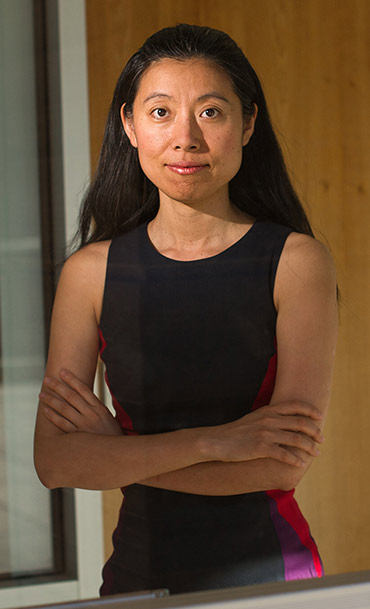Dawn Song: Privacy protector
 It seems that consumers are increasingly being asked to choose between their privacy and the convenience and interconnectedness offered by social media and online platforms. Computer security expert Dawn Song doesn’t think they should have to choose. The Berkeley professor of electrical engineering and computer sciences (EECS) is harnessing the powers of machine learning and blockchain technology to develop systems that protect users’ privacy when they use cloud-based services.
It seems that consumers are increasingly being asked to choose between their privacy and the convenience and interconnectedness offered by social media and online platforms. Computer security expert Dawn Song doesn’t think they should have to choose. The Berkeley professor of electrical engineering and computer sciences (EECS) is harnessing the powers of machine learning and blockchain technology to develop systems that protect users’ privacy when they use cloud-based services.
Song’s track record of research in security goes back to her time as a Ph.D. student in computer science at Berkeley. Her 2002 dissertation delved into the topic of an “Automatic Approach to Building Secure Systems.” By the time the MacArthur Foundation awarded Song a “genius” fellowship in 2010 for her work on computer security and privacy, her research in cybersecurity had already been recognized with a CAREER award by the National Science Foundation, a Guggenheim Fellowship and an Alfred P. Sloan Research Fellowship.
Song returned to Berkeley Engineering as a faculty member in 2007 after a stint as an assistant professor at Carnegie Mellon University. She is part of a number of research initiatives at Berkeley, including the Berkeley Artificial Intelligence Research Lab, Berkeley Deep Drive and the Berkeley Center for Human-Compatible AI.
In 2018, Song co-founded startup Oasis Labs to use blockchain, a ledger of digital transactions protected by cryptography, to ensure consumer privacy. The company includes postdoctoral researcher Raymond Cheng and Ph.D. candidate Noah Johnson from Berkeley’s EECS department.
To learn more:
- Meet Oasis Labs, the blockchain startup Silicon Valley is buzzing about (MIT Technology Review)
- MacArthur Fellows Program | Class of 2010 (MacArthur Foundation)